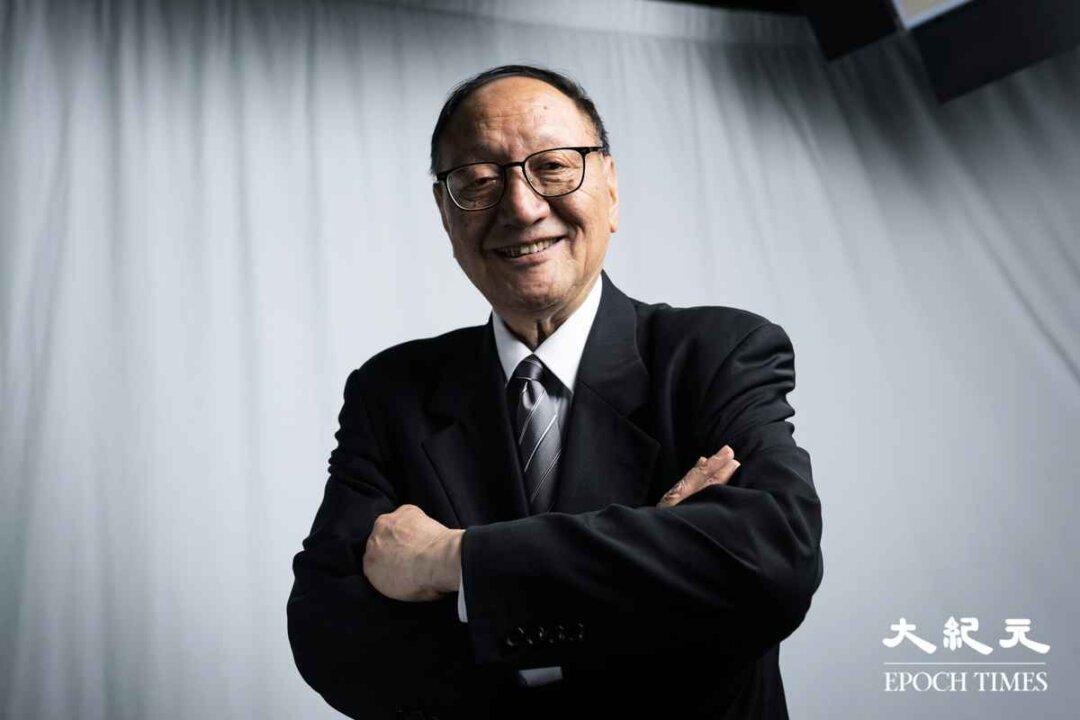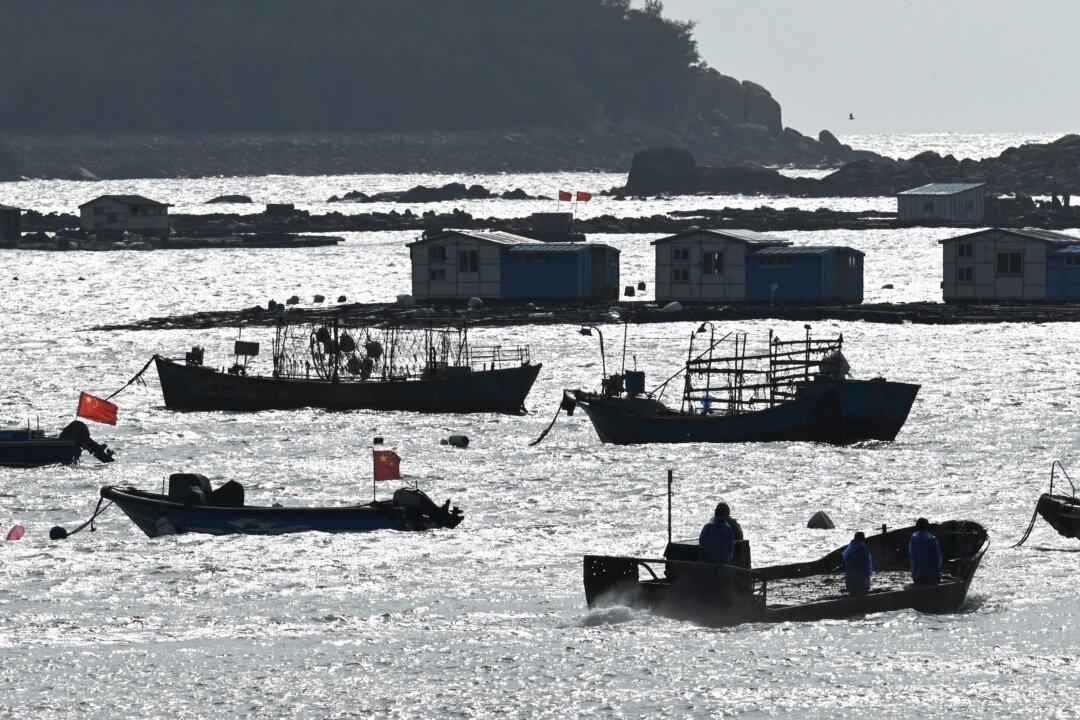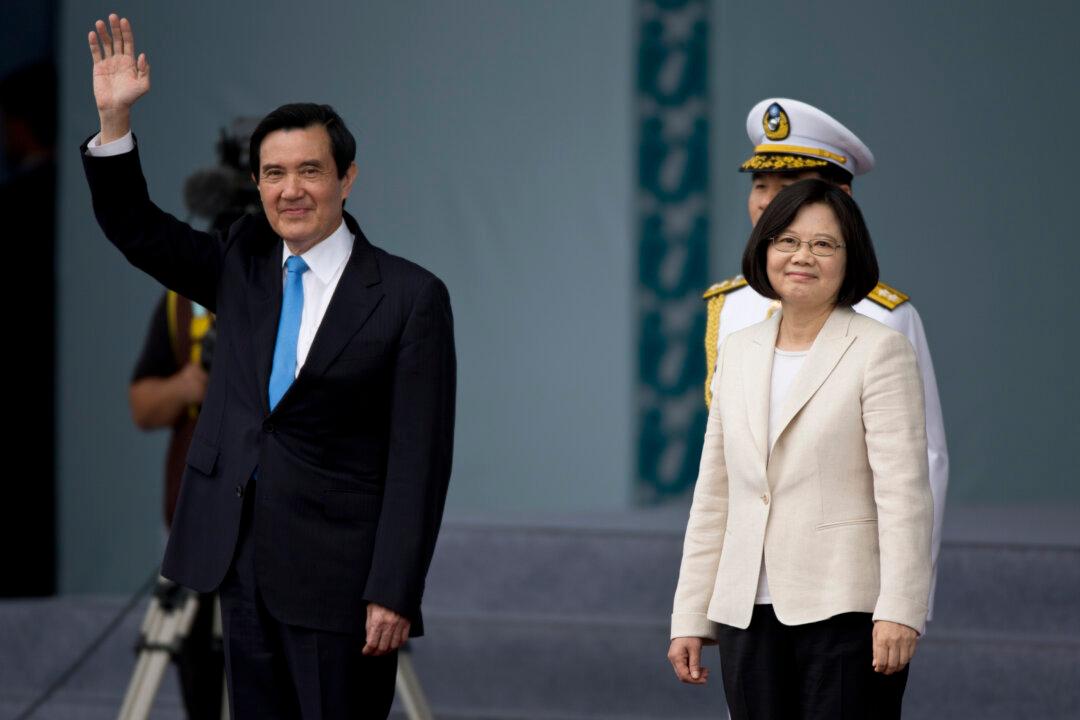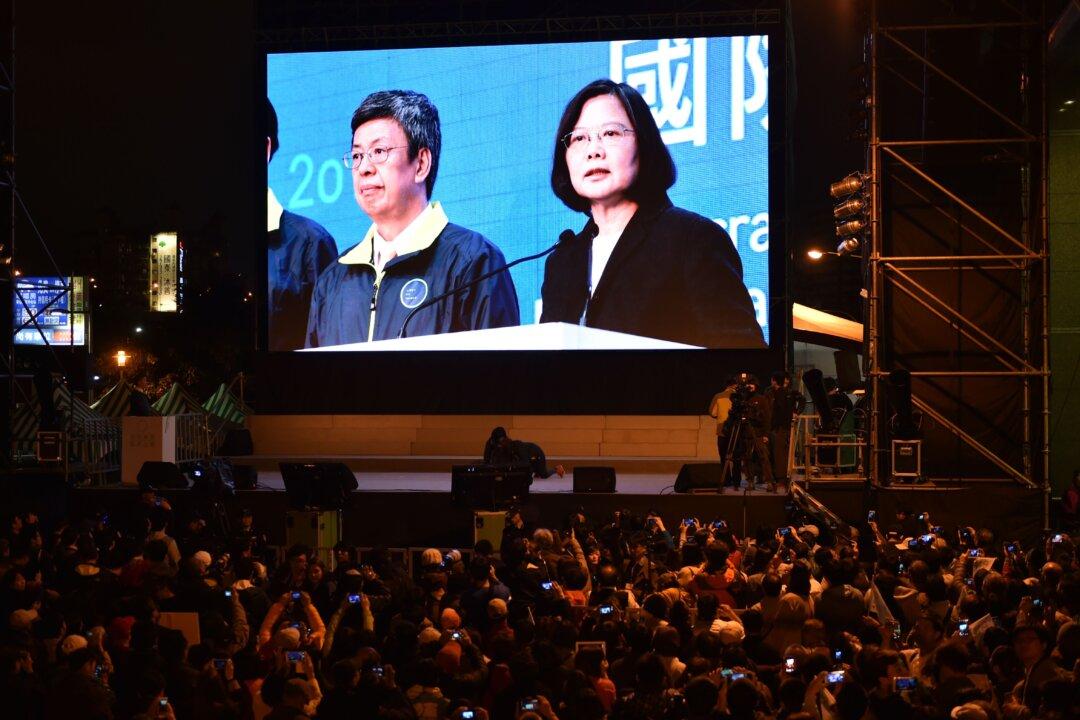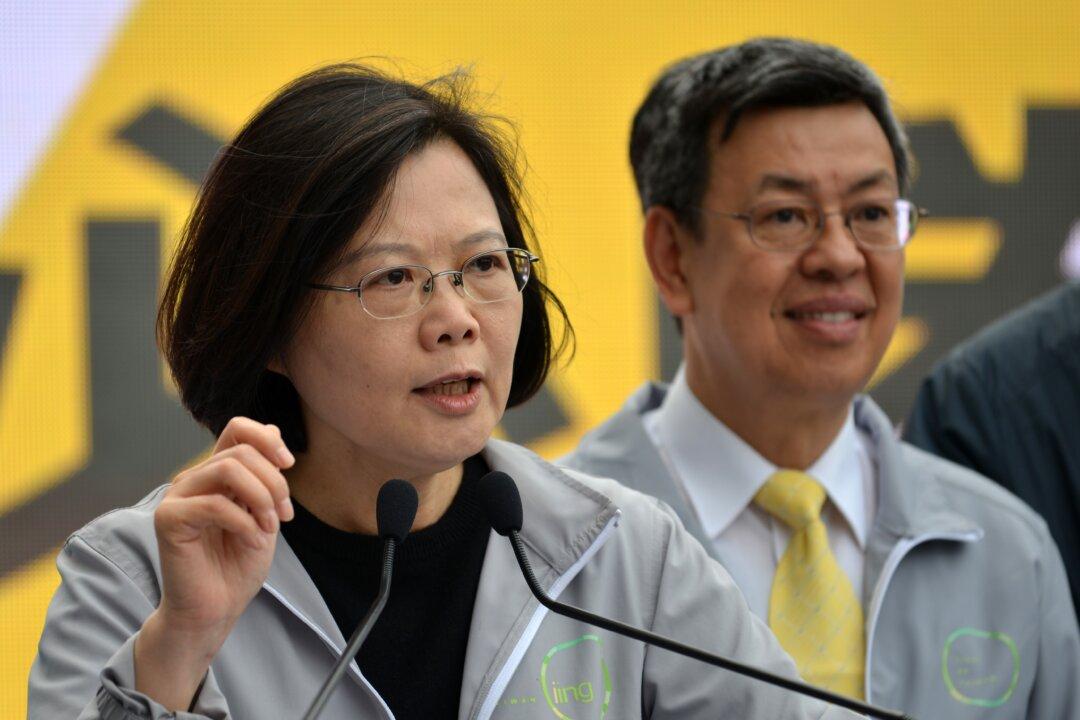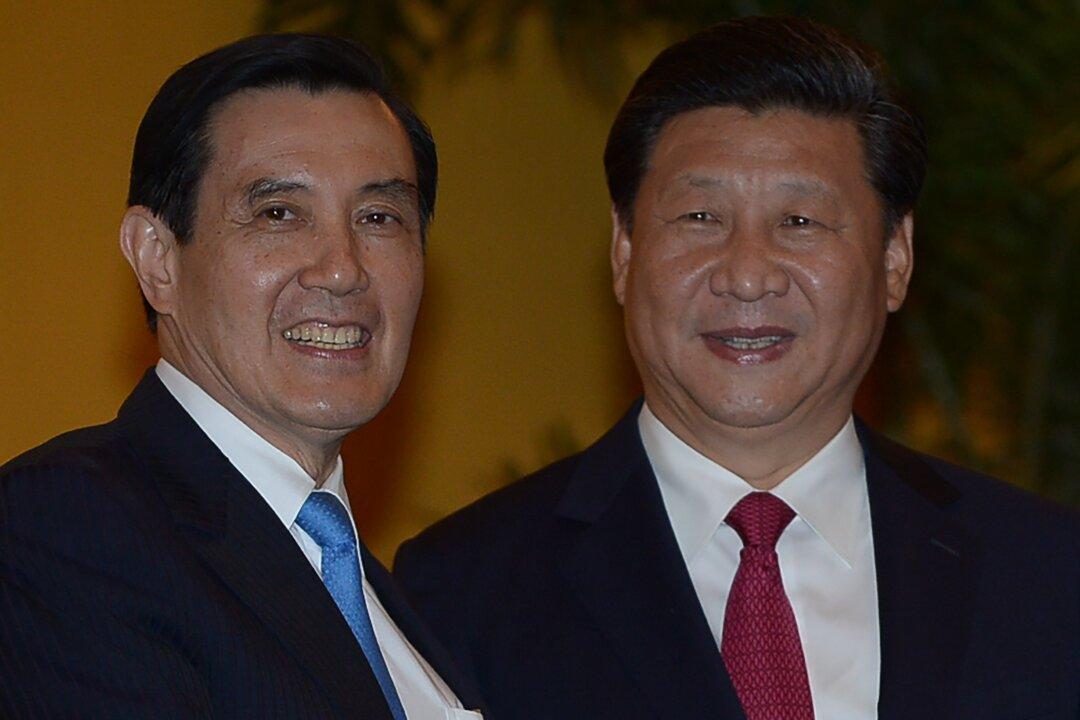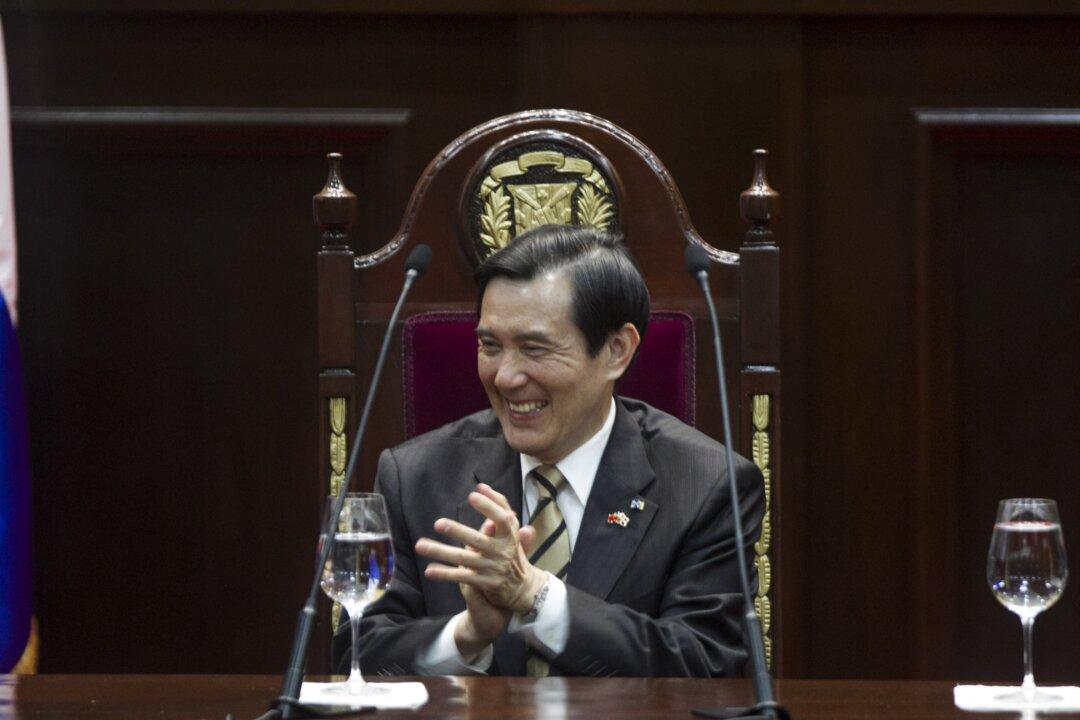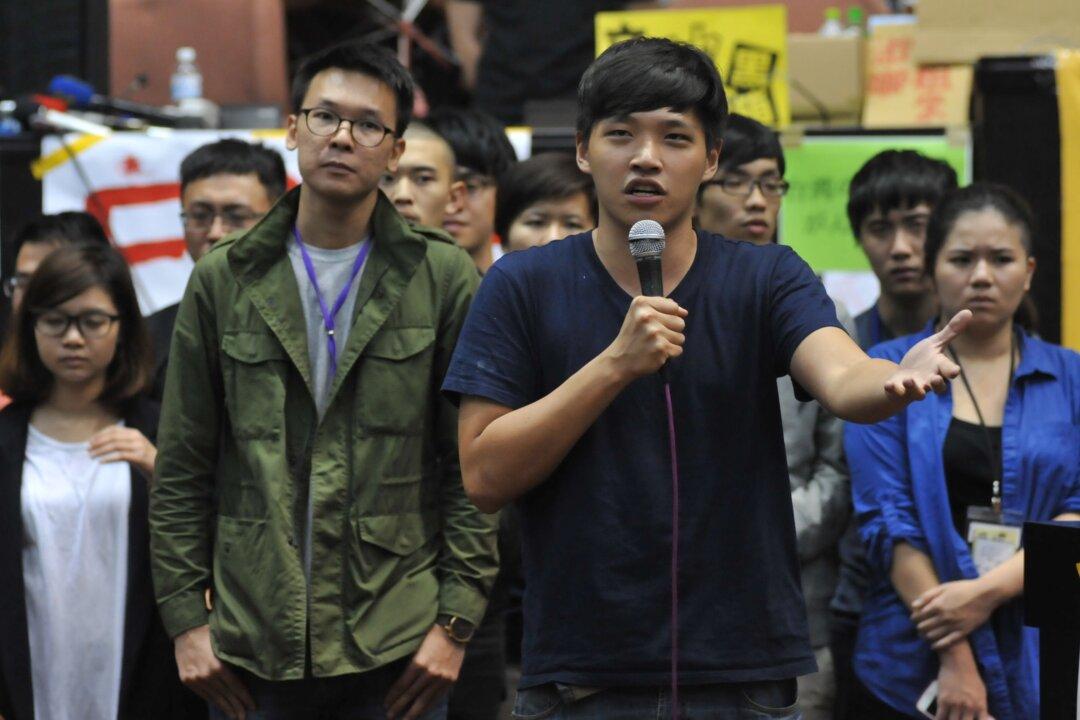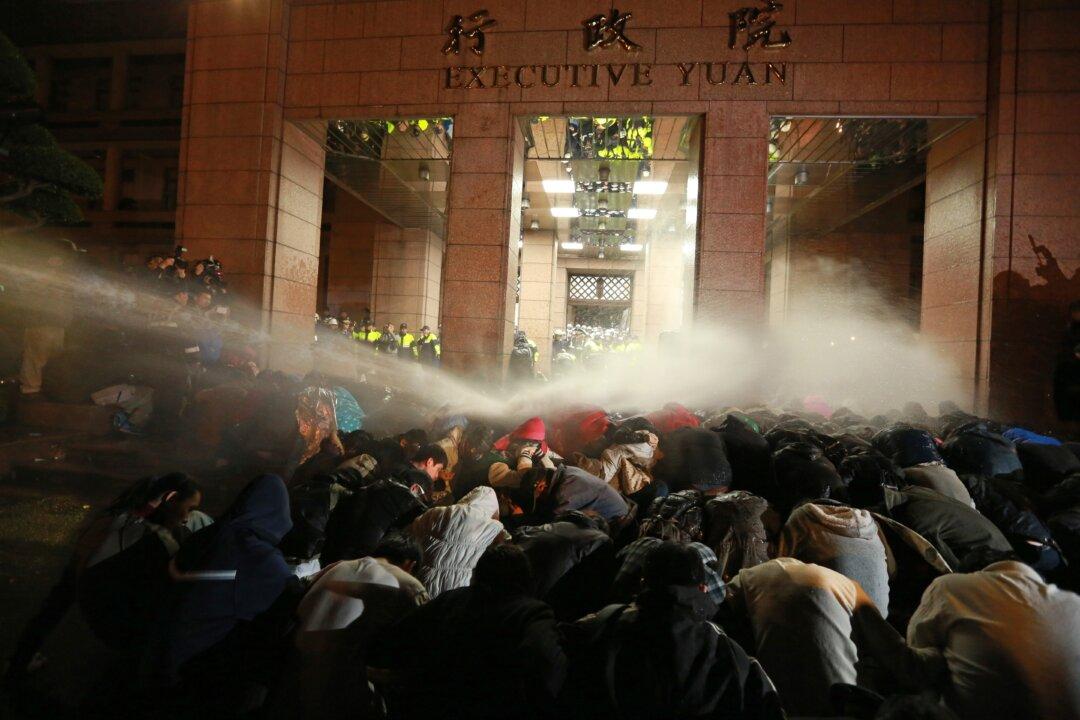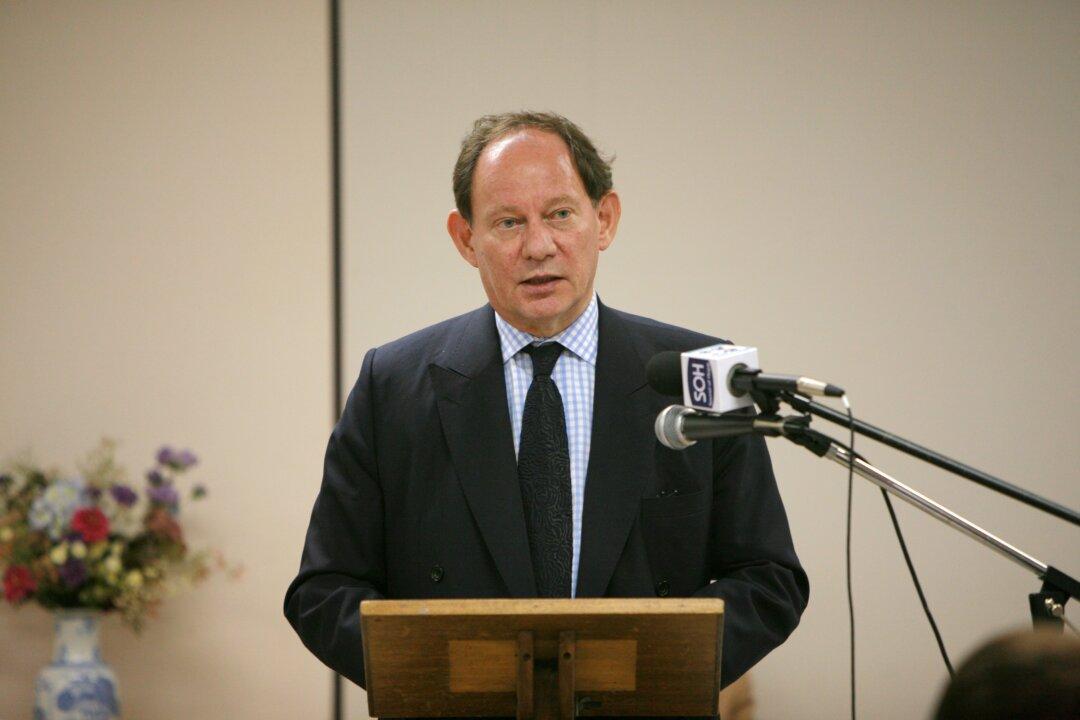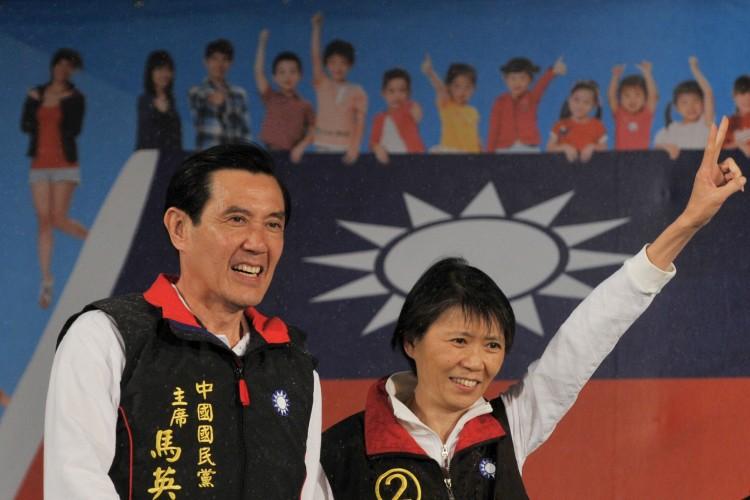Focus
Ma Ying-jeou
LATEST
Former ICAC Chief Investigator Remembering Integrity Establishment, the Foundation of HK’s Glory Days
Interview with former Chief Investigator of the Anti Corruption Agency (ICAC), in Hong Kong.
|
Chinese Netizens Can’t Believe That Taiwan’s Former President Lives ‘Worse Than a Communist Party Village Chief’
This is not the first time that the conduct of elected officials in Taiwan has left the Chinese netizens in amazement.
|
Taiwan Elects 1st Female President, Rejects Pro-China Party
Pro-independence party candidate Tsai Ing-wen claimed victory in Taiwan’s presidential election late Saturday to become the island’s first female head of state.
|
China’s Nightmare: The Mainland Dreads a DPP Victory in Forthcoming Election in Taiwan
It is uncomfortable for the communist authoritarian mainland to face a thriving and robust democracy right at its doorstep.
|
Taiwan President’s Meeting With Xi Jinping a Step Back, Opposition Says
Opposition leader Tsai Ing-wen had hoped that President Ma would represent Taiwan fairly and equally before China.
|
Chinese and Taiwanese Leaders Meet for First Time in 66 Years
The leaders of China and Taiwan met Saturday for the first time since the formerly bitter Cold War foes split amid civil war 66 years ago, and though no concrete agreement resulted, both hailed the meeting as a sign of a new stability in relations.
|
Taiwan, China Leaders to Meet for First Time Since 1949
Taiwan’s president will meet Saturday, Nov. 7, with his counterpart from once icy political rival China, the Taiwanese side said, a historic first culminating nearly eight years of quickly improved relations despite wariness among many Taiwanese of the authorities on the mainland.
|
Taiwan, Chinese Presidents to Meet for First Time Since ‘49
Taiwan’s president will meet Saturday with his counterpart from once icy political rival China.
|
More Mainland Chinese Have Universal Suffrage on Their Mind
October is generally a time of celebration in China. But this year, it has brought the Chinese Communist Party (CCP) much trouble.
|
Taiwan Protesters End Occupation of Parliament
Taiwan student movement leaders announced on Monday that they would cease occupying parliament on 6 p.m., April 10, three weeks after they began protesting against a trade pact with China.
|
Tensions Increase in Taiwan After Violent Dispersal
In the day following a violent eviction of students from government quarters in Taiwan on March 24, residents have been reflecting on its implications for the country.
|
European Parliament Vice President Calls for Free Press in China
The British Vice President of the European Parliament has called on Taiwan’s president to defend democracy and freedom of expression.
|
Xi Jinping Fan Group Catches China’s Attention
A Chinese microblog dedicated to Communist Party leader Xi Jinping has gone viral.
|
Taiwanese Protest Against President, in Tens of Thousands
A march of tens of thousands on Sunday expressed that frustration, as well as opposition generally to Ma Ying-jeou, the president and head of the Nationalist Party, whose administration has been characterized by China-friendly policies.
|
Taiwan’s Election Worries Chinese Democracy Advocates
While Taiwan’s recent election may have given mainlanders an inspiring taste of democracy, dissidents in and out of China fear that the election’s outcome is a setback for hopes for achieving democracy on the mainland.
|
CCTV Doctors Video to Discredit Taiwanese Athlete in Asian Games
China’s state television channel is accused of deliberately altering the sequence of a Taekwondo match it broadcast.
|
Former ICAC Chief Investigator Remembering Integrity Establishment, the Foundation of HK’s Glory Days
Interview with former Chief Investigator of the Anti Corruption Agency (ICAC), in Hong Kong.
|
Chinese Netizens Can’t Believe That Taiwan’s Former President Lives ‘Worse Than a Communist Party Village Chief’
This is not the first time that the conduct of elected officials in Taiwan has left the Chinese netizens in amazement.
|
Taiwan Elects 1st Female President, Rejects Pro-China Party
Pro-independence party candidate Tsai Ing-wen claimed victory in Taiwan’s presidential election late Saturday to become the island’s first female head of state.
|
China’s Nightmare: The Mainland Dreads a DPP Victory in Forthcoming Election in Taiwan
It is uncomfortable for the communist authoritarian mainland to face a thriving and robust democracy right at its doorstep.
|
Taiwan President’s Meeting With Xi Jinping a Step Back, Opposition Says
Opposition leader Tsai Ing-wen had hoped that President Ma would represent Taiwan fairly and equally before China.
|
Chinese and Taiwanese Leaders Meet for First Time in 66 Years
The leaders of China and Taiwan met Saturday for the first time since the formerly bitter Cold War foes split amid civil war 66 years ago, and though no concrete agreement resulted, both hailed the meeting as a sign of a new stability in relations.
|
Taiwan, China Leaders to Meet for First Time Since 1949
Taiwan’s president will meet Saturday, Nov. 7, with his counterpart from once icy political rival China, the Taiwanese side said, a historic first culminating nearly eight years of quickly improved relations despite wariness among many Taiwanese of the authorities on the mainland.
|
Taiwan, Chinese Presidents to Meet for First Time Since ‘49
Taiwan’s president will meet Saturday with his counterpart from once icy political rival China.
|
More Mainland Chinese Have Universal Suffrage on Their Mind
October is generally a time of celebration in China. But this year, it has brought the Chinese Communist Party (CCP) much trouble.
|
Taiwan Protesters End Occupation of Parliament
Taiwan student movement leaders announced on Monday that they would cease occupying parliament on 6 p.m., April 10, three weeks after they began protesting against a trade pact with China.
|
Tensions Increase in Taiwan After Violent Dispersal
In the day following a violent eviction of students from government quarters in Taiwan on March 24, residents have been reflecting on its implications for the country.
|
European Parliament Vice President Calls for Free Press in China
The British Vice President of the European Parliament has called on Taiwan’s president to defend democracy and freedom of expression.
|
Xi Jinping Fan Group Catches China’s Attention
A Chinese microblog dedicated to Communist Party leader Xi Jinping has gone viral.
|
Taiwanese Protest Against President, in Tens of Thousands
A march of tens of thousands on Sunday expressed that frustration, as well as opposition generally to Ma Ying-jeou, the president and head of the Nationalist Party, whose administration has been characterized by China-friendly policies.
|
Taiwan’s Election Worries Chinese Democracy Advocates
While Taiwan’s recent election may have given mainlanders an inspiring taste of democracy, dissidents in and out of China fear that the election’s outcome is a setback for hopes for achieving democracy on the mainland.
|
CCTV Doctors Video to Discredit Taiwanese Athlete in Asian Games
China’s state television channel is accused of deliberately altering the sequence of a Taekwondo match it broadcast.
|

